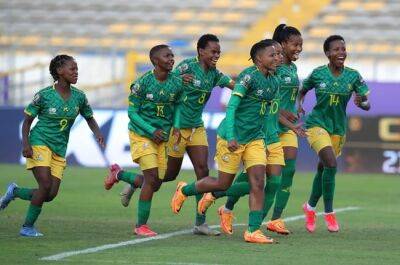USA still world leaders in women’s football despite England closing gap
Midway up the stands inside Wembley, the signage flashes with “European v world champions”. The buildup to England’s showdown with the USA has been overshadowed, rightly, by the weight of the findings of the Sally Yates report into abuses in women’s football in the States and the burden of it on the US players, but the narrative of the match itself is hugely exciting.
The USA have been the world leaders in women’s football for a long time. The gap to the rest has been vast, but it is closing. Megan Rapinoe went as far as to say on Thursday that she feels “there isn’t really a huge gap any more and there hasn’t been for a long time”.
Why, though, has a gap existed for so long despite continued and increasing investment in England?
There are a number of reasons why the US have led the way. Most significant was the introduction of Title IX, part of the education amendments to the Civil Rights Act in 1972. Title IX decreed that government-funded institutions could not discriminate on the basis of sex. It meant educational institutions had to rebalance their funding of sports programmes: to continue large backing for key men’s sports such as American football and basketball meant putting the same amount into women’s sports.
That has created a player pool that is the envy of the world, with scholarships allowing players from the US, and across the globe, to receive a high-quality education and play incredibly competitive football. With that has come a culture of competitiveness and expectation – which contrasts greatly with the gratitude culture that has existed in England. In the US, women have a right to play football and for it to be properly funded, and they expect it to be.
The US women’s national team, and the various






